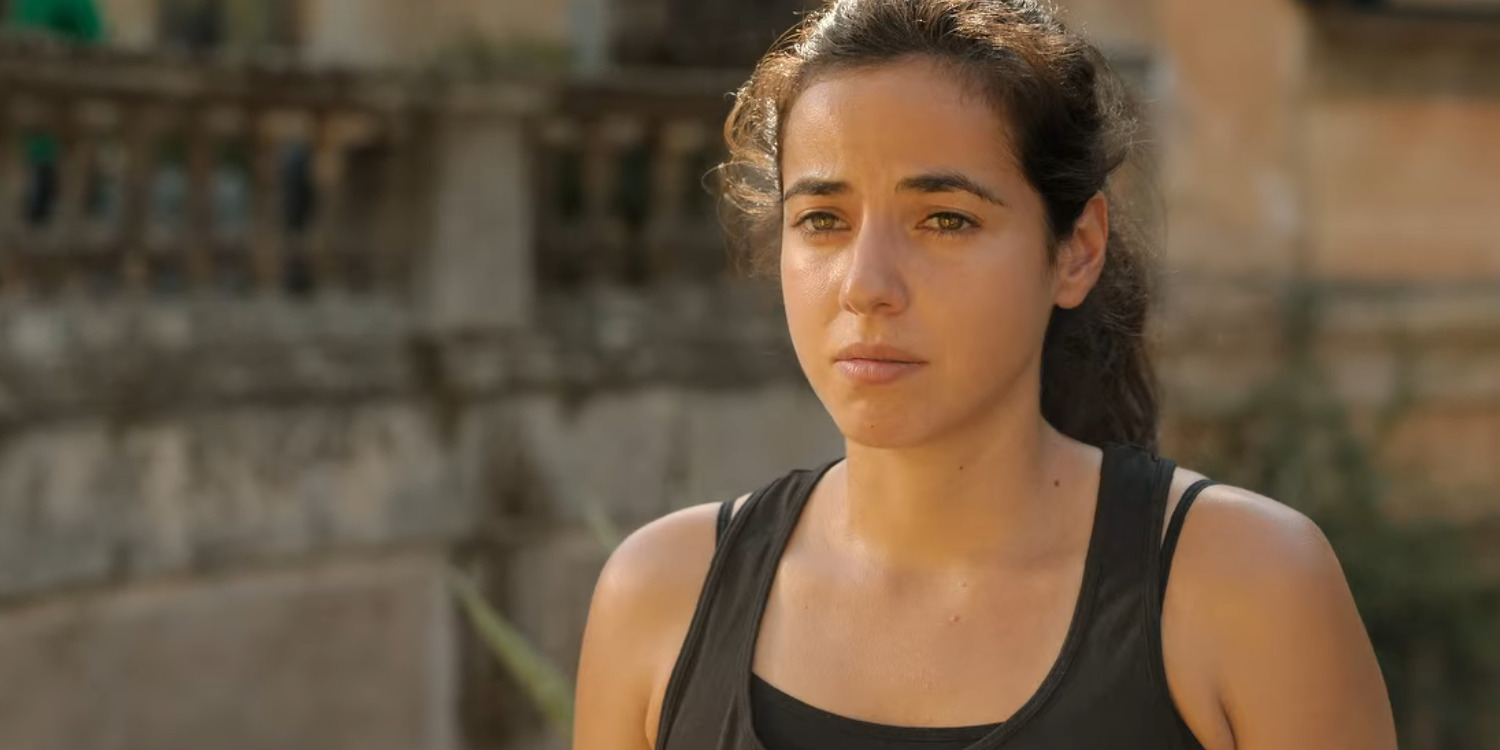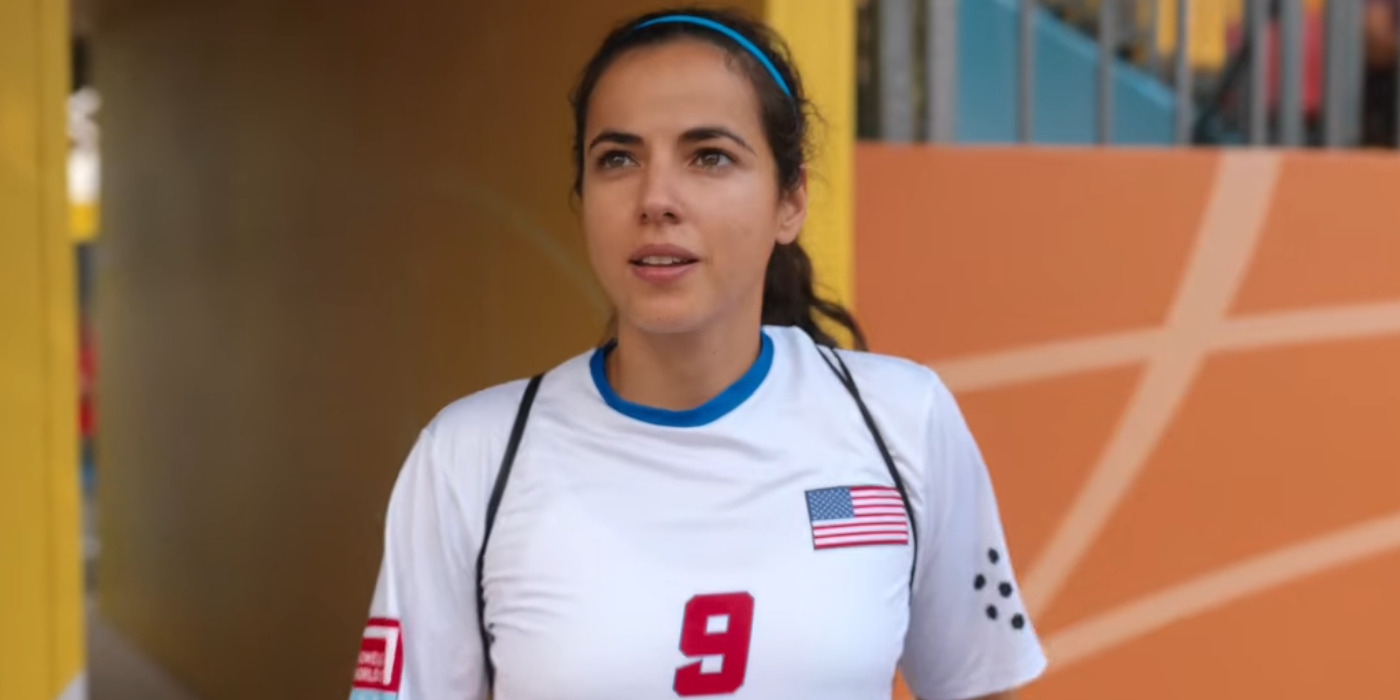Even though ‘The Beautiful Game’ focuses on Mal Bradley and his team representing England at the Homeless World Cup Tournament in Rome, the narrative strives to include other perspectives into the story as well. Thus, in charting the athletic journey of Mal and his exceptional team, including the talented but wild card last-minute addition, Vinny Walker, the film also takes detours to feature the players from Japan, South Africa, and other teams. Team USA’s striker, Rosita Hernandez, who maintains a record for most strikes during the tournament, remains one such character.
The female footballer’s journey as an immigrant American player presents a refreshingly different perspective alongside the stories of English players. Thus, Rosita’s inclusion in the film adds another engaging plotline that highlights the transformative capacities of the community and the opportunity that the Homeless World Cup offers. Consequently, viewers are bound to remain curious about the character’s connection to real life. SPOILER ALERT!
Rosita Hernandez: A Fictional Footballer
Rosita Hernandez from ‘The Beautiful Game’ is not based on a real American Football Player. The film presents a fictionalized narrative that remains informed by the real-life stories of people who have participated in the Homeless World Cup Tournament over the years. Nevertheless, the events in the film, exactly as they unravel, are not biographical in nature. Therefore, the characters within the story only strive to present an authentic account of the players’ experience rather than any individual player in specific.

For the same reason, while it’s easier to point toward a real-life counterpart for characters such as Vinny Walker, others like Rosita possess fewer ties to any real-world personality. Instead, their experiences and circumstances provide a comprehensive account of some of the challenges and obstacles the unhoused community faces in their everyday life. Furthermore, through their involvement in the HWC, these characters also portray a hopeful narrative about how the organization can change people’s lives for the better.
As such, even though there’s no set real-life counterpart behind Rosita’s character, her storyline brings a realistic depiction of homelessness and second chances. In the film, Rosita hails from the United States, where she lives as a young immigrant. However, due to her housing situation, the woman has low opportunities of achieving citizenship within the country. Consequently, the HWC remains a beacon of hope that could help her on her path to American citizenship.
Rosita’s backstory as an immigrant youth reflects the real-life issue of homelessness that plagues the country’s undocumented immigrant population. Although precise information is difficult to obtain regarding such instances, reports from The National Health Care for the Homeless Council estimate that undocumented immigrants make up 1 in 20— that is, 5%— of the USA’s homeless adult population. Thus, Rosita’s storyline, even before entering the HWC, also resonates with a socially relevant aspect of reality.
In the film’s end, even though the USA Team fails to make it to the finals, Rosita secures a bright future for herself as the Player of the Tournament, who gets scouted by College Football Scouts. Thus, the woman exits her life-changing HWC experience with a sports scholarship to the University of Colorado, which affirms her American citizenship. As a result, her character remains a prime example of a Homeless World Cup success story.
The HWC has seen many other immigrant individuals find their way through the Tournament over the years. For instance, England’s current coach/manager, Frankie Juma, is a Sudanese refugee who played for the refugee team before becoming a coach for the nation’s HWC Football team. Likewise, Raph Aziz, who moved to England from France and represented the former nation in the 2018 tournament, shares his immigration background with Cristina Rodlo’s on-screen character.
Nevertheless, Rosita’s experiences, while compelling with tidbits of real-life relevance and resonance, have no evident parallels in a real-life individual’s story. For the same reason, her character remains a fictitious element within ‘The Beautiful Game.’
Read More: Is Netflix’s The Beautiful Game Based on a True Story?

